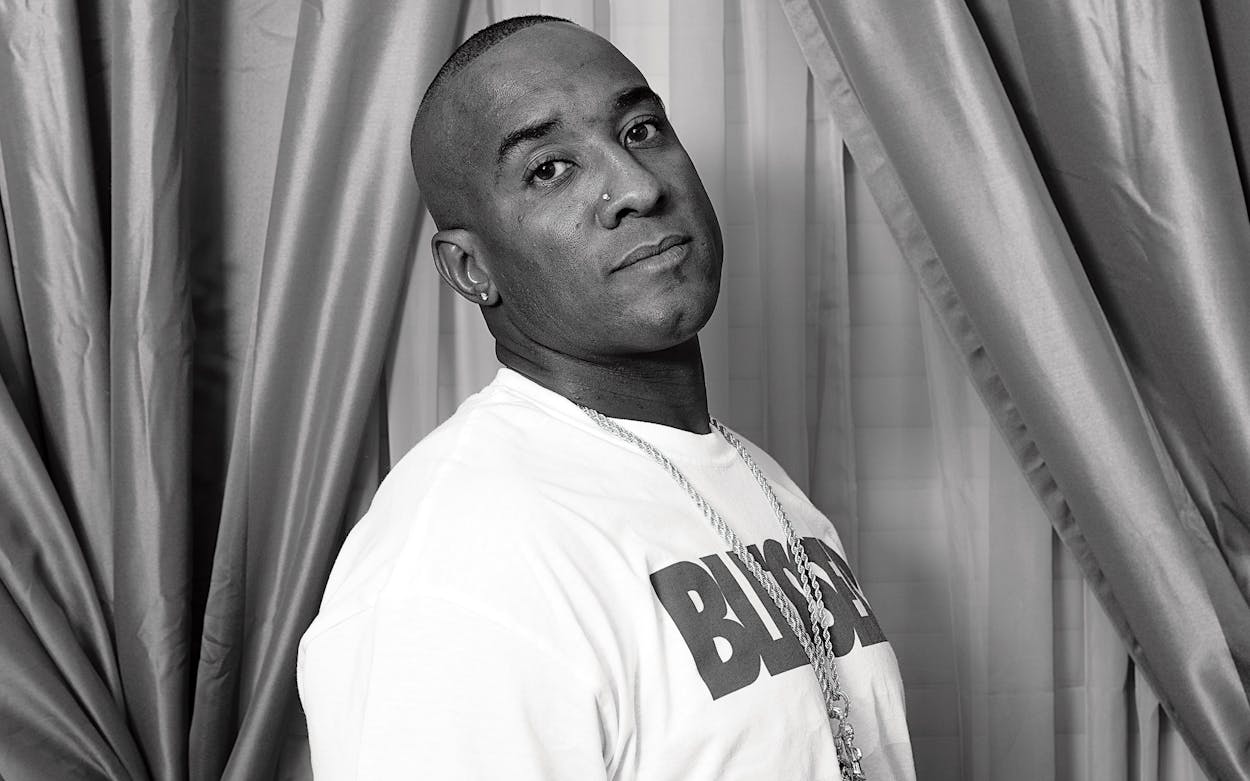Better late than never.
Today, the Texas Court of Criminal Appeals—the highest criminal tribunal in the state—finally came around to a conclusion that the rest of the justice system (cops, prosecutors, other judges) reached back in 2019: Lydell Grant is innocent. As we wrote in the January issue of Texas Monthly, Grant was arrested for the 2010 murder of a young man named Aaron Scheerhoorn outside a nightclub in Houston’s Montrose district. Six eyewitnesses, looking at a photo lineup, fingered Grant as the killer. Grant swore he was innocent. “We have six eyewitnesses that can positively identify you as the killer,” Grant remembers a detective telling him. “I don’t care if you have six hundred witnesses,” he responded. “I didn’t kill him.”
But a Houston jury believed the witnesses, and Grant went to prison, where he spent much of his time writing lawyers and journalists to ask for help getting out. Finally, in 2019, after the Innocence Project of Texas agreed to take his case, he was exonerated by DNA—it pointed to another man, who then confessed. After that, the entire Harris County justice system seemed to come together to right a wrong: the Houston Police Department, the Harris County district attorney’s office, and the trial judge officially agreed that Grant was innocent and should be exonerated. He was freed from prison on bond.
But when the judges on the CCA got the chance to affirm the decisions of the others—all of whom had firsthand knowledge of the facts of the case—the court refused. In fact, although the CCA took up Grant’s case in January 2020, the court sent it back to the trial court two times for more information, including the other man’s confession and photos of him. The CCA also ordered the lower court to do further research—to try and locate and interview the six witnesses and get them to “respond” to Grant’s claim that he was innocent. The Houston Chronicle called the CCA’s move “shameful.” Grant’s lawyer, Mike Ware, who has helped exonerate three dozen men, called it “the most outrageous thing I’ve ever seen.”
When Harris County investigators sought out the witnesses from 2010, they could find only one, who gave a statement that cast an even darker light on the state’s case against Grant. “To be honest,” said the witness, “the day the police officers came to me with the lineup and asked me to pick someone, I told them I didn’t see the guy, but they said to look again, because he was in there and other people had already picked him. I picked Mr. Grant, even though I did not really feel he was the guy.”
And so, finally, a year and a half after Grant was released on bond, the CCA has done what it should have done long ago: state that Lydell Grant is innocent of the murder of Aaron Scheerhoorn. Grant, the court wrote, “has established by clear and convincing evidence that he is actually innocent.” (A concurring opinion noted, “It is not that this Court is reluctant to grant actual innocence; it’s merely that we are unable to do so without a complete record.”)
The case now goes back to the trial court. Once the DA’s office dismisses the charges, Grant’s lawyers will file to get the murder taken off his record, and he will be eligible for more than $500,000 in compensation for his time behind bars ($80,000 per year)—plus health insurance. Last year, he told me he planned to use some of the money to buy a truck and a trailer and start a trash-hauling business. “I love trucks,” Grant said. He might also upgrade his 2007 Kia Optima.
Most important to Grant, a longtime rapper and songwriter, he will no longer be considered a convicted killer. As he sang in one of his best songs, which he wrote soon after his release in 2020, “I’m actually innocent, ’cause I didn’t do it.”
Finally, the CCA listened.
- More About:
- Wrongful Convictions
- Houston








